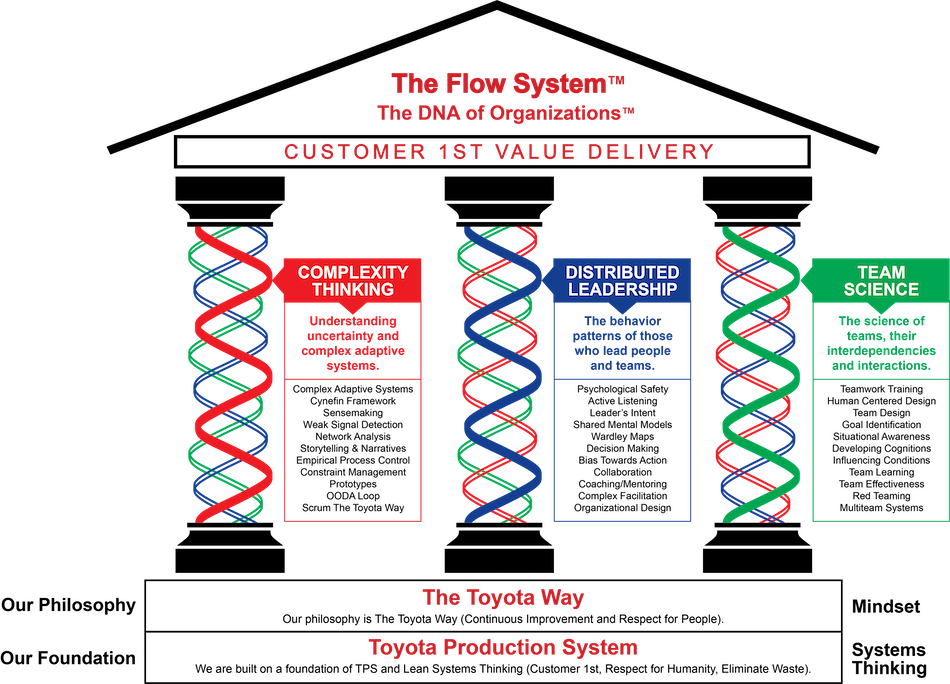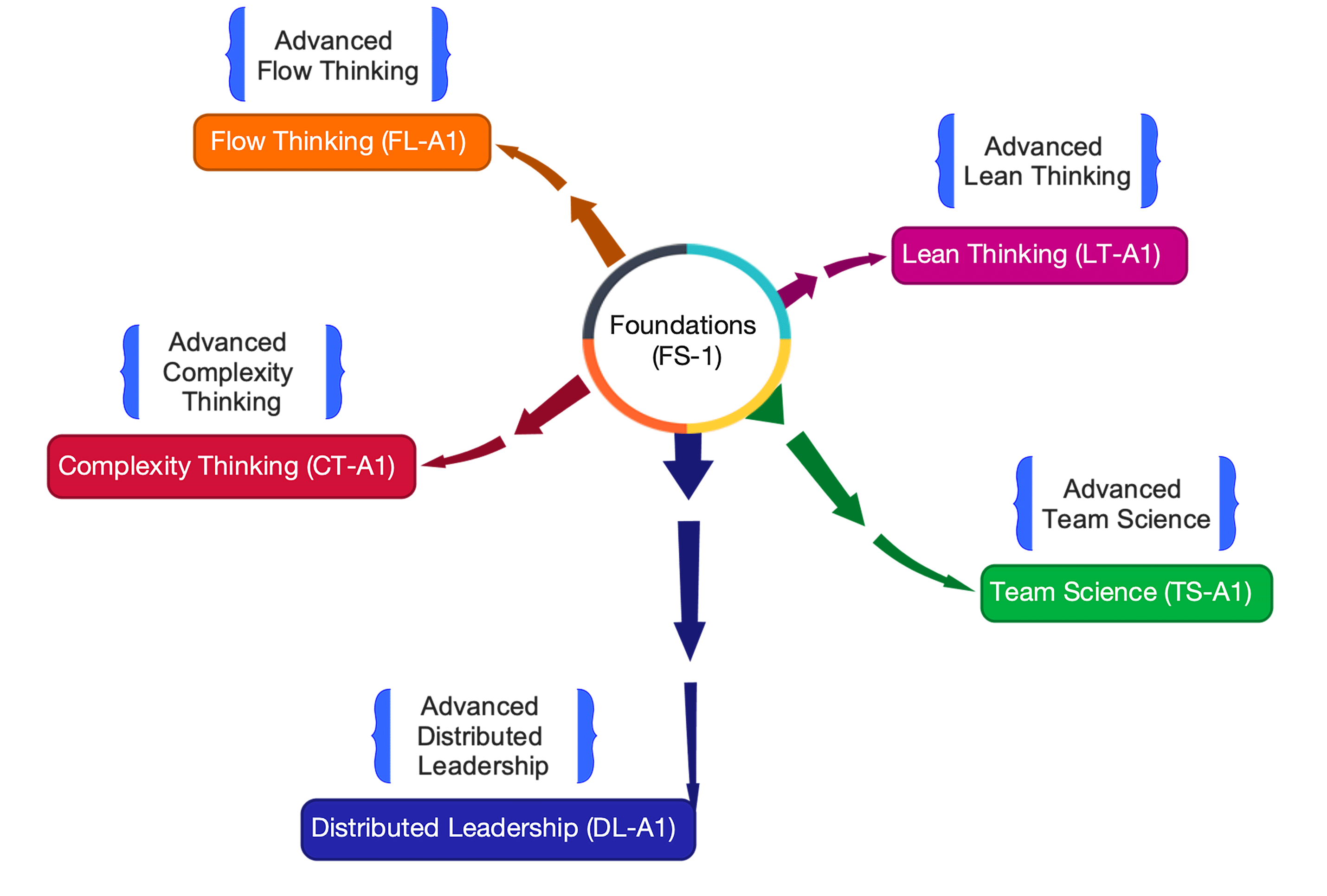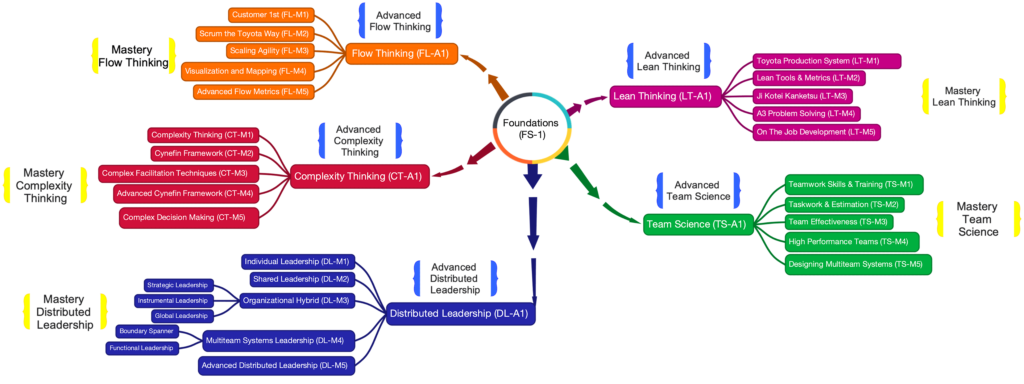Decoupled Learning and Accreditation
We decided to decouple assessment and accreditation from training to enable anyone to recognize their acquired knowledge. Participants are acknowledged for their achievement at the foundation and advanced level courses after completing an online assessment. At the master’s level, participants will demonstrate an ability to apply the new knowledge and complete an online assessment. The master’s level courses’ application portion will be reviewed by peers and industry experts in their chosen field.
Participants are not obligated to pay for training before receiving recognition of their accomplishments. This does not mean that studying, applying, and reflection are not required; they are definitely required. The assessments are challenging and designed to test the participant’s knowledge, skills, and abilities.
Participants can take traditional training from accredited instructors (face-to-face and virtual), and take self-paced online training (asynchronously). All formats provide the same content designed to meet the needs of individual participants.

A True Master’s Level Program
The Flow System curriculum was designed by university academics and leading industry experts that span all the Flow System disciplines. The curriculum mirrors that of a proper master’s level degree program found in many higher education institutions.
The Flow System education and accreditation program is an accelerated learning program aimed at professionals and practitioners looking to expand their knowledge base. Participants can take the curriculum in its entirety, or individual tracks can be selected, depending on the participant’s needs.
Our curriculum does not replace a university education, but it does enable accelerated learning at the same level for those unable to attend any formal university program. It is also more affordable, can be budgeted over time, and is offered in various formats (face-to-face, virtual online, self-paced online).
We designed this program not to be a quick way of achieving another set of certificates. We purposefully avoided using the term certification. We want to recognize individual participant’s commitment to learning and their ability to apply their knowledge to real-world problems. The aim is to create a key differentiator in the industry and to provide a holistic learning environment, and not a single prescribed methodology or framework.
Foundations (FS-1) Accreditation
Two options for accreditation:
- Take a Foundations Course and pass an assessment (≥ 85%). Two attempts at the assessment included.
- Pay a one off fee and take the online assessment (≥ 85%). One attempt at the assessment.
| Course | Course Completion &/or Accreditation (≥ 85%) | Accreditation |
|---|---|---|
| Foundations Course |  |
Foundations Accreditation |
Advanced Accreditations
Advance Course Accreditations (5):
- Flow Thinking (FL-A1)
- Complexity Thinking (CT-A1)
- Distributed Leadership (DL-A1)
- Team Science (TS-A1)
- Lean Thinking (LT-A1)
The Flow System Foundations (FS-1) course is a prerequisite for any advanced course. For example, to be accredited in the advanced Flow Thinking (FL-A1) course, it is first necessary to be accredited in The Flow System Foundations (FS-1) course. Any of the five advanced courses (FL- A1, CT-A1, DL-A1, TS-A1, LT-A1) can be taken once accredited in The Flow System Foundations (FS-1) course.
Accreditation is achieved after successfully completing an assessment. Two attempts of the assessment are included in each participant’s training fee. Participants are able to take the assessment after completion of their training (in-person or online). Participants who wish to skip the training may do so and take the assessment directly by paying a fee but will only receive a single attempt to pass.

Recommended Path
It is necessary to be accredited in The Flow System Foundations (FS-1) first, followed by completing one or more of the five advanced courses before moving to any master-level course. We recommend, although it is not mandatory, that you complete all the advanced courses before choosing a mastery concentration as many of the topics are interwoven in each master-level track.
By obtaining The Flow System Foundations (FS-1) accreditation, along with being accredited in each of the five advanced courses, participants will have gained a strong foundational knowledge of The Flow System. With this foundational knowledge, participants can then continue to a mastery track of their choosing.
It is recommended for participants to develop their knowledge and skills in less familiar/ comfortable areas for them. The mastery level tracks offer participants the opportunity to expand their knowledge and skills in one of five areas of concentration. Ultimately, the goal is to provide participants with the necessary knowledge, skills, techniques, and tools to support their professional growth and to support their efforts to make a positive impact in their work environment.
The order in which the advanced courses are taken is not critical. While it is ideal for taking each course in the order listed below, scheduling and availability may not allow every participant to do so. The only prerequisite for any of the five advanced courses is first obtaining The Flow System Foundation (FS-1) accreditation before moving on to any of the five advanced courses.
| Courses | Course Completion &/or Assessment (≥ 85%) | Accreditation |
|---|---|---|
| The Flow System Foundations (FS-1) |  |
Foundations Accreditation |
|
Flow Thinking (FL-A1) Advanced Level |
 + +  |
Advanced Flow Thinking Accreditation |
|
Complexity Thinking (CT-A1) Advanced Level |
 + +  |
Advanced Complexity Thinking Accreditation |
|
Distributed Leadership (DL-A1) Advanced Level |
 + +  |
Advanced Distributed Leadership Accreditation |
|
Team Science (TS-A1) Advanced Level |
 + +  |
Advanced Team Science Accreditation |
|
Lean Thinking LT-A1) Advanced Level |
 + +  |
Advanced Lean Thinking Accreditation |
Mastery Concentrations and Accreditations
After receiving an advanced accreditation in any of the five advanced tracks (Flow Thinking, Complexity Thinking, Distributed Leadership, Team Science, Lean Thinking) participants can begin working toward a mastery accreditation in one of the five tracks. There are five possible Mastery Tracks to choose from. The mastery track selected is based on one’s desire or need.
Mastery Concentrations (5):
- Flow Thinking
- Complexity Thinking
- Distributed Leadership
- Team Science
- Lean Thinking

To obtain a mastery accreditation in any one of the five mastery tracks, one must successfully complete all five of the mastery level courses listed for the selected master’s track.
For example:
Complete Flow System Foundations, FS-1 accreditation followed by the advanced accreditation in Distributed Leadership (DL-A1).
To obtain a mastery accreditation in Distributed Leadership you must successfully complete each of the five mastery level Distributed Leadership training courses:
- Individual Leadership (DL-M1)
- Shared Leadership (DL-M2)
- Organizational Hybrid (DL-M3)
- Multiteam Systems Leadership (DL-M4)
- Advanced Distributed Leadership (DL-M5)
The assessment of each mastery level accreditation will require both passing a rigorous online assessment and taking part in a review by at least one recognized expert and one or more peers in the same mastery concentration. These are designed to be relaxed and informal but also to test your applied knowledge and understanding as a skilled practitioner.
The Triple Helix of Flow Award

The Triple Helix of Flow Award is awarded to anyone completing all 5 mastery concentrations successfully. It is not a separate assessment but is earned by demonstrating the exceptional achievement of reaching the standard of 5 mastery concentrations in The Flow System. The award also comes with a scholarship that can be used to continue education at a recognized university. The amount of the award will vary.